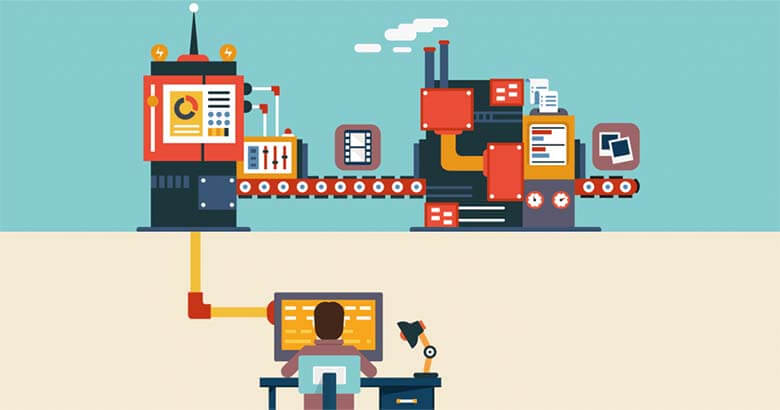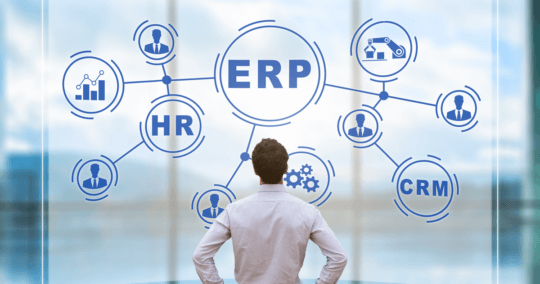What is a Citizen Integrator?

Anyone interested in the topic of iPaaS is increasingly confronted with the concept of the Citizen Integrator. In this blog we will answer the question: What is a Citizen Integrator and what is its place in corporate integration projects?
iPaaS stands for Integration Platform as a Service. With this cloud variant, companies can network data, applications, processes and systems uniformly, cleanly and clearly. Business and IT processes can be seamlessly linked and operated without interruption using iPaaS. More about iPaaS can be read in our blog: What is iPaaS?
In technical literature, it is often emphasized that an iPaaS solution greatly simplifies integration work and makes it accessible to a wider circle of interested parties. Accordingly, employees who want to implement integration projects require little or no programming knowledge. This new role is represented by the so-called Citizen Integrator.
Citizen Integrator Definition
A MicroScope Article on computerweekly.com titled ‘In pursuit of agility: empowering the citizen integrator’ of December 2017 states that ‘organisations are increasingly finding that for technology to truly enable a business, it needs to empower individuals across functions, not just in IT teams. It is these domain experts, or ‘citizens’, who are on the front line of the business, know what great customer experience looks like, and are fast becoming the first people involved in defining and creating new initiatives to do business better. And they are seeking access to and use of data and systems to get the job done.’
A Citizen Integrator can thus create simple software and process connections on their own. The IT staff have only the task of coordinating and monitoring the integration project. This is expected to result in less effort and cost savings.
The idea of the Citizen Integrator is based on the premise that the need for integration is constantly growing in the specialist departments and that the specialist departments are also the drivers of these integration projects. This is due to the increasing use of cloud services for specific business processes. Consider this example: the marketing department wants to provide a cloud service for marketing automation in order to gain a better overview of the data and be able to work more efficiently. The business department (the marketing department) knows the processes and wants to map / optimise the integration. This usually requires that the Citizen Integrator has power user rights to the cloud services to be integrated, and has a basic technical understanding.
What position does the Citizen Integrator have in integration projects?
In connection with the iPaaS discussion, the Citizen Integrator is receiving a lot of attention.
This attention is certainly justified, but Citizen Integrators will only be a small minority in integration projects. In practice, not all integration projects can be realised in a sustainable manner via point & click / drag & drop methods.
Integration quickly becomes complex – very often it requires relevant and advanced IT or software knowledge. This is unlikely to change in the foreseeable future, as integration tasks in companies are becoming increasingly complex due to increasing regulatory, compliance or market requirements.
Furthermore, the majority of Citizen Integrators usually only focus on the problems of the department itself, which must be solved via integration. The integration strategy as a whole quickly disappears from view and the danger grows that further data islands will form within the company.
These data islands often consist of several makeshift patched-up solutions and abandoned construction sites. Often, technically experienced IT personnel are then needed to remedy the situation that has arisen. To prevent this, it is advisable to provide Citizen Integrators with professional support and advice from the very beginning. This advice can be provided by internal software or IT specialists or a professional iPaaS provider such as SEEBURGER. The Business Integration Suite from SEEBURGER can also be operated as an iPaaS solution.
Thank you for your message
We appreciate your interest in SEEBURGER
Get in contact with us:
Please enter details about your project in the message section so we can direct your inquiry to the right consultant.
Written by: Dr. Martin Kuntz
Dr. Martin Kuntz has worked for SEEBURGER since 2000, and is a member of the Board of Directors since 2015. His strengths lie in the Cloud, business applications, and the digitalization of specialty and technical business processes. He has degrees in physics and business administration. Earlier, he worked for several years in the Simulation department of the Karlsruhe Institute for Technology and for Airbus subsidiary Airbus Defence and Space.





